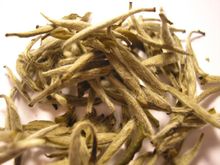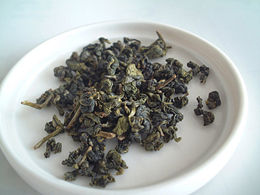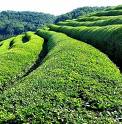|
Organic Tea and the Black, Green, White, and OolongThere are hundreds of companies out there selling regular tea, organic tea, and loose leaf tea. And how in the world do you decide which one is the best quality for your money? Well, that is why I am here. I am going to explain to you a little about each type of teas, how it is manufactured and grown, their benefits and which the best to buy and why. I promise this will not be a long drawn out explanation of tea. I will make it brief and then get to the good stuff and tell you the best tea to buy and what it can do for your health. O.k. are you ready? There are four basic types of true teas: They are black tea, white tea, green tea, and oolong tea (also known as wu-long). And, of course, organic tea which what each one of these teas just mentioned should be. 



All tea is grown from the same plant, Camellia sinensis. Whether you get green, white, oolong, or black tea differences come from how they are processed – on how much oxygen the leaves are allowed to absorb. The leaves and leaf buds are use to produce tea. There are two major goals in the processing of tea. The first is to preserve the tea by driving most of the moisture from the leaves. The second objective is to bring flavor out on the surface of the leaves so that it can transfer quickly to the water during the steeping process. Organic Tea is grown without the use of chemical pesticides or fertilizers. The soil is enriched with natural compost and a layer of mulch retains the moisture while providing extra nutrients as it breaks down. Organic tea is also better for the farmer. Tea plants can live more than 100 years, and organic farming methods allow the tea plants to remain healthy for the duration of their lifespan. This means that the farmer has less expense in replacing tea plants. Black tea undergoes a full fermentation process composed of four basic steps - withering, rolling, fermenting, and firing (or drying). Green tea is often referred to as "unfermented" tea. The freshly picked leaves are allowed to dry, then are heat-treated to stop any fermentation. Oolong tea is generally referred to as "semi-fermented" tea and is principally manufactured in China and Taiwan. The leaves are wilted in direct sunlight, and then shaken in bamboo baskets to lightly bruise the edges. Next, the leaves are spread out to dry until the surface of the leaf turns slightly yellow. Oolongs are always whole leaf teas, never broken by rolling. White tea is produced on a very limited scale in China and India. It is the least processed of its many varieties. The new tea buds are plucked before they open and simply allowed to dry. The curled-up buds have a silvery appearance and produce a pale and very delicate cup of tea. 

Grown Organic Tea can be grown almost anywhere, but the best teas are grown in cooler climates and/or at higher elevations. Tea is produced in over thirty countries around the world, though the finest comes from just five: China, India, Sri Lanka, Taiwan and Japan. Home to most of the world's tea drinkers, these countries continue to pay much attention to how organic tea is grown and processed. In many, tea continues to be produced by hand in accordance with age-old traditions. China is the birthplace of tea and continues to produce more intricate varieties than any other country. Green teas account for almost two-third of Chinese crop. India is the world's largest tea producer, accounting for about a third of the world's total. Only about half of it is available for export. They produce nearly all black tea. Tea continues to be cultivated on small family plots, which number close to forty thousand. Sri Lanka is the third largest producer of tea in the world. Their tea fields are situated at elevations between 3,000 and 8,000 feet, where the hot and steamy weather makes the tea bushes flush every seven to eight days. The teas are generally classified by altitude; higher-grown generally regarded as superior. Japan is a sizeable producer of almost exclusively green tea. However, because it is a nation of many tea drinkers, only about 2 percent of Japan's crop is available for export. Taiwan bulk of the tea produced here is oolong, a cross between black and green. Many consider being the world's finest oolongs. Presently, only about two percent of the island's famous teas are exported. These falls into three categories: dark oolongs, jade oolongs, and the almost-green pouchong tea.

Benefits of Organic Teathe amazing health benefits of tea.” If you're drinking tea for health benefits, you don't need to drink a specific kind--just pick a kind that you like. I prefer oolong or green, I like the taste over black tea. Of course, the obvious reason to drink organic tea – you don’t get all that chemicals added to your leaves. The results are producing and providing a fuller and richer taste as well as all health benefits. They both have about the same amount of healing powers. Consequently, since green tea is process less, it has a little more antioxidant power but not that much more.
Allergies – the tea blocks the biochemical process involved in producing an allergic response. Green tea may be useful against a wide range of sneeze-starting allergens, including pollen, pet dander, and dust. Arthritis – the benefit for arthritis patients by reducing inflammation and slowing cartilage breakdown. Bone Strength - Tea flavonoids may be bone builders. Cancer - "Tea is one of the single best cancer fighters you can put in your body," according to Mitchell Gaynor, MD, director of medical oncology at the world-renowned Strong Cancer Prevention Center in New York City. In a new study, both teas kept healthy cells from turning malignant after exposure to cancer-causing compounds. |



